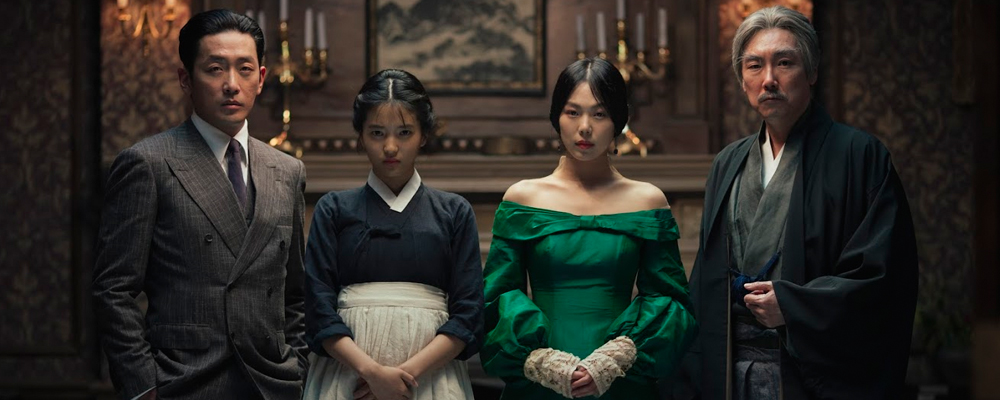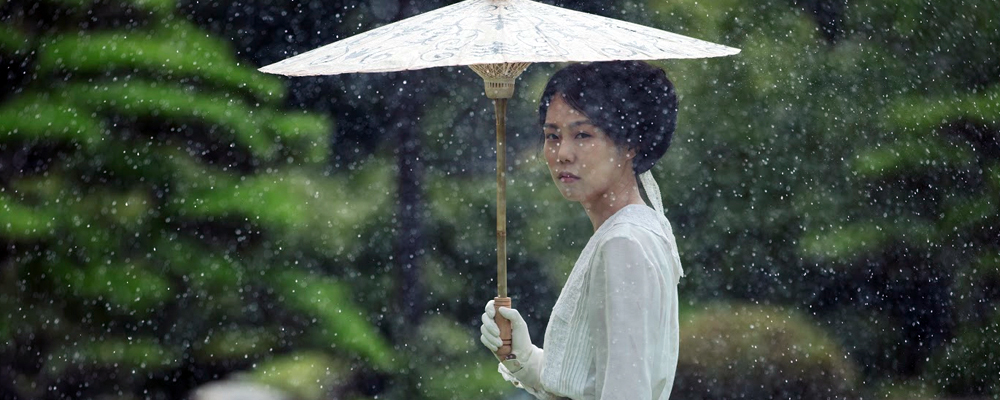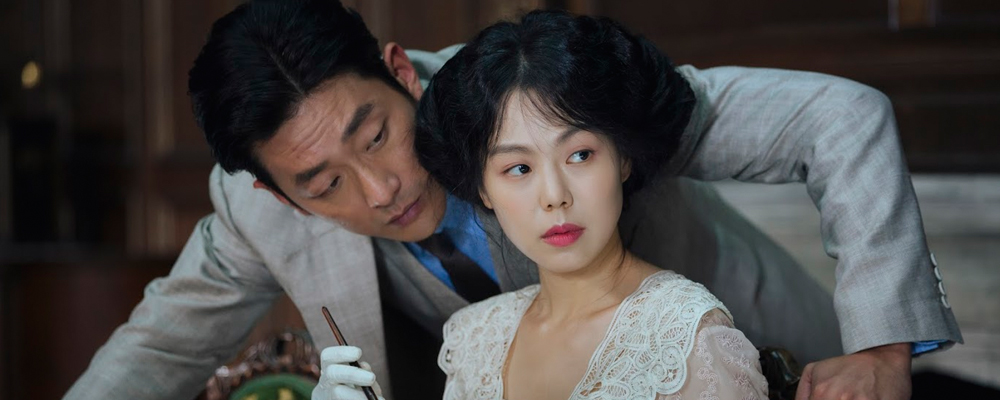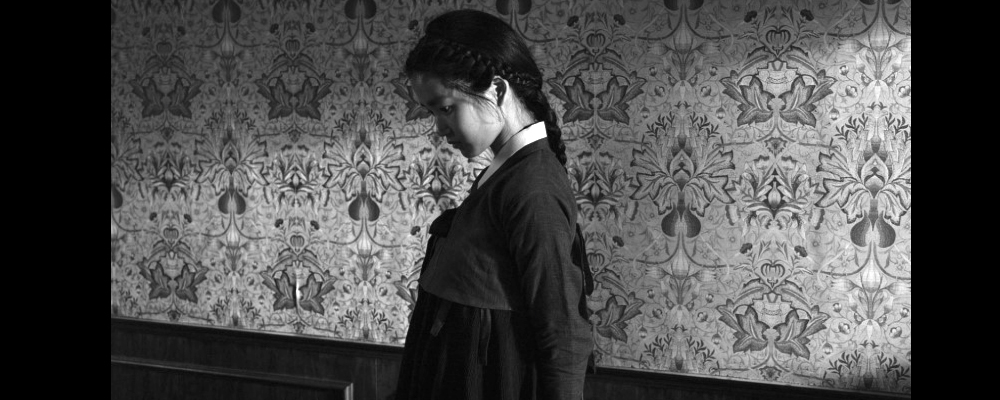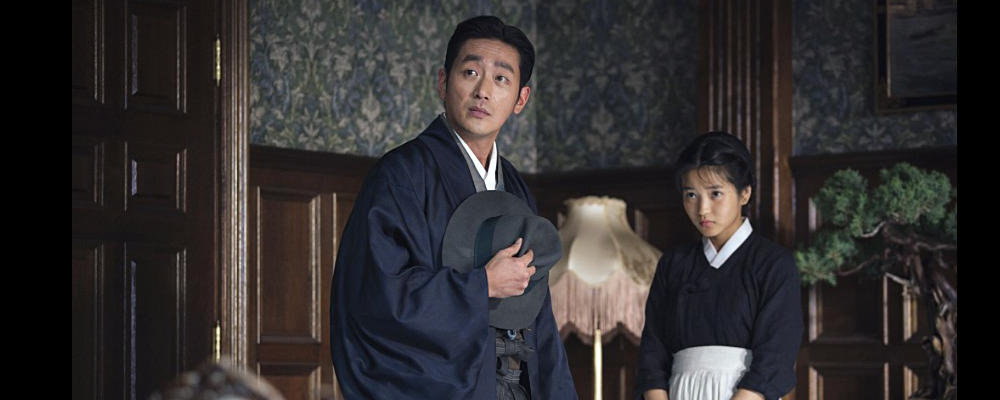Chan-wook Park and Kim Tae-ri Reveal the Common Sense Behind ‘The Handmaiden’
Aryeh Harris-Shapiro
Director Chan-wook Park, famed purveyor of lurid violence and black comedy, takes an unexpected turn in his new film “The Handmaiden.” Adapted from Sarah Waters’ historical romance novel “Fingersmith,” the film follows Sook-Hee (Kim Tae-ri), a Korean pickpocket and thief who becomes the titular handmaiden to Lady Hideko (Min-hee Kim), a cloistered Japanese heiress. Sook-Hee plans to con Hideko out of her fortune, but an intimacy blossoms between the women that throws her plans into chaos. What follows is an atypically subtle entry in Park’s filmography, one filled with eroticism, violence and betrayal.
Chan-wook Park and Kim Tae-ri recently spoke with Entertainment Voice about the creative process behind the film. When asked about resetting the story from Victorian England to Japanese-occupied Korea, Park explained, “I actually did set out to make an English-language film set in Victorian England, but through my producers’ suggestion I translated it to take place in Korea.” Park claims that the choice was exclusively motivated to make the story more powerful and involving for his audience, especially his Korean fans. “Not only are they from different nationalities, but these two nations hold animosity towards each other, especially back in that time,” Park said. “And that plays an important element, to have one person from the occupying country and the other from the occupied country. It provides one more important obstacle for the two lovers to overcome.”
The bilingual nature of the film posed unique challenges for Kim Tae-ri, a relative newcomer chosen over 1500 other women. “I became aware of this project through the audition notice that was posted online,” she said. “Because Director Park is such a well-known filmmaker in Korea, it was probably something that the entire population was aware of at the time.”
“Before the principal photography started, I started my English training. The production was good because they made sure that I was able to take lessons and have some competency in the language,” she said. And the thing about my character is that her Japanese doesn’t have to be as refined as the other characters in the film, so comparatively I think I got the easy part.”
As for the intimate love scenes with Min-hee Kim, the new star didn’t seem too rattled. “She’s an actress I’ve admired for a long time,” she said. “I’ve respected her work. So coming into those scenes where we needed to be intimate it wasn’t such a difficult thing for me to do. We became close quite quickly. There was no discomfort between us, and personally, it was someone I really admired. And her attitude towards me was she wanted to make sure I was comfortable with her.”
Park’s down-to-earth practicality as a director comes through clearly in person. One might expect the famously violent filmmaker to revel in the graphic content of his films, but Park rejects that philosophy. “In my films, violence is used as a device,” he said. “I don’t use it because violence unto itself has some sort of artistic value. What it does bring with it is pain and suffering related to violence and a sense of guilt that is related to those who inflict the violence. Necessity dictates that I portray violence, it’s not the other way at all.”
When asked about his film’s resemblance to ‘90s erotic thrillers such as “Basic Instinct,” Park responded: “It’s not a function of me saying ‘I’m seeing this genre dying out and I want to bring it back.’ It was purely a function of me being drawn to the source material and being drawn to this story. Compared with those films, I take this film as being more of a romantic film or a fairy tale. Not to say this film is in any way superior to those films, all I’m saying is that I consider it to be different.”
It’s clear that Park puts a great deal of thought into every element of his films. When asked about the way he contrasts beauty and ugliness, Park took the opportunity to dig deep into the logic behind a particular piece of production design: Hideko’s imperious Uncle Kouzuki (Jin-woong Jo) uses the removable mats in his library to transform it into a makeshift Japanese garden, a choice that for Park goes far beyond an arbitrary piece of visual flair. “He puts in trees in there and he puts in water in there and all the symbols of mountains and the river.” Park said. “It’s saying that Uncle Kouzuki is trying to create his own universe, his world inside this library, or his domain. And by that, you can see how he holds a desire to become a god-like being.”
That attention to detail is partially a result of the director’s longtime creative alliances with his department heads, all of whom he credits as major influences. “They’re all equally important in my mind,” he said. “These are the people I’ve known the longest, since before I was even a filmmaker. And when I talk to these people, it’s not just about how I am going to execute this screenplay, but I talk to them even right from the onset, even when I’m contemplating whether or not to embark on the project.”
Park ended the interview by revealing the secret to his long, fruitful creative partnerships, one as deceptively straightforward as the rest of his philosophy. “The kind of relationship I have with them is that they’re able to freely tell me their thoughts,” he said. “So, if I ask them, ‘should it be this way?,’ they’re able to come back and say ‘no, it should be that way.’”
“The Handmaiden” opens in limited release on Oct. 21.

